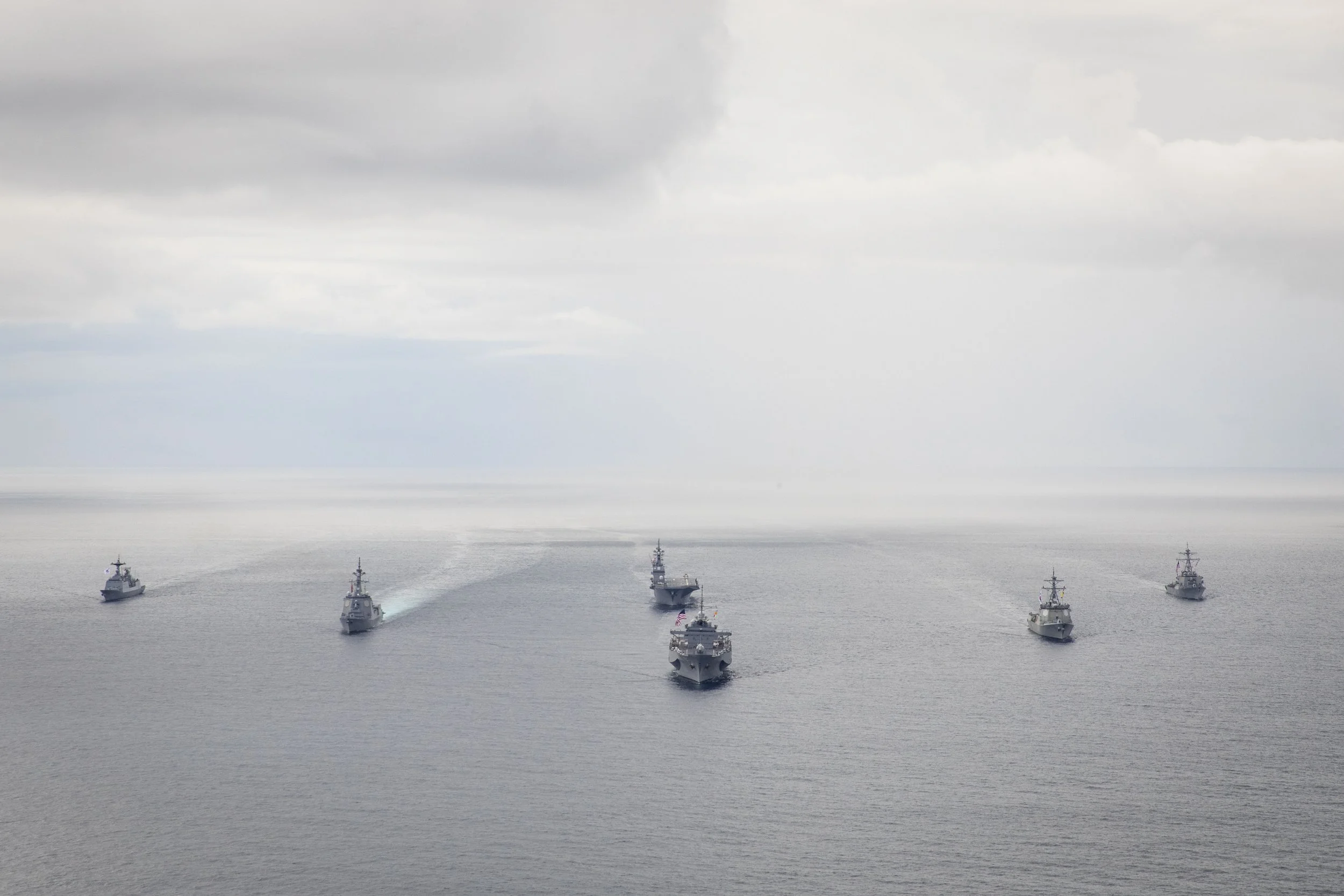Indo-Pacific Committee
Japan, Republic of Korea, and the United States completed Freedom Edge 25, the premier trilateral multi-domain exercise between the three nations.
Mission
The committee conducts assessments of regional challenges and opportunities, providing nonpartisan recommendations that strengthen U.S. engagement, alliances, and deterrence capabilities. ACNSL aims to educate the public and Congress on the value of a robust Indo-Pacific strategy that promotes peace, prosperity, and a free and open international order.
Strategic Challenges
China’s assertion of the Ten-Dash Line, militarization of artificial islands, and economic coercion threaten regional stability and international law. Through illegal territorial claims and harassment of neighboring nations, China seeks control over critical maritime trade routes and resources, challenging U.S. influence and the rules-based order in the Indo-Pacific.
The erosion of U.S. alliances and partnerships in the region, whether through competing diplomatic or economic initiatives (China’s Belt and Road Initiative) or insufficient U.S. engagement, could weaken collective deterrence and security frameworks.
The rise in nationalism, suppression of dissent, and weakening of democratic institutions in the Indo-Pacific region reflect broader global trends of democratic erosion. These developments threaten regional stability, undermine trust in democratic governance, and create opportunities for authoritarian powers to expand their influence.
Indo-Pacific Commentary
Securing the Edge: America's Technology Long Game for Competing with China
Taiwan’s critical role in global supply chains and the future of US-Taiwan ties
2026 U.S.-Japan Security Seminar
China and Congress: Is There Still a Bipartisan Consensus?
Is China Leaving the United States Behind? A Conversation With Jonathan A. Czin
America’s Cyber Retreat Is Undermining Indo-Pacific Security
ACNSL Publications: Committee on the Indo-Pacific
Committee Chair
Rear Admiral Todd J. Squire (ret.)
Committee Members
Rear Admiral Jamie Barnett, US Navy, Retired
Vice Admiral Kevin Green, US Navy, Retired
Major General Antonio M. Taguba, US Army, Retired
Rear Admiral Harold Robinson, US Navy, Retired
Rear Admiral John D. Butler, US Navy, Retired
Brigadier General Joseph Medina, US Marine Corps, Retired
Hon. Thomas Countryman, Minister-Counselor, Retired





